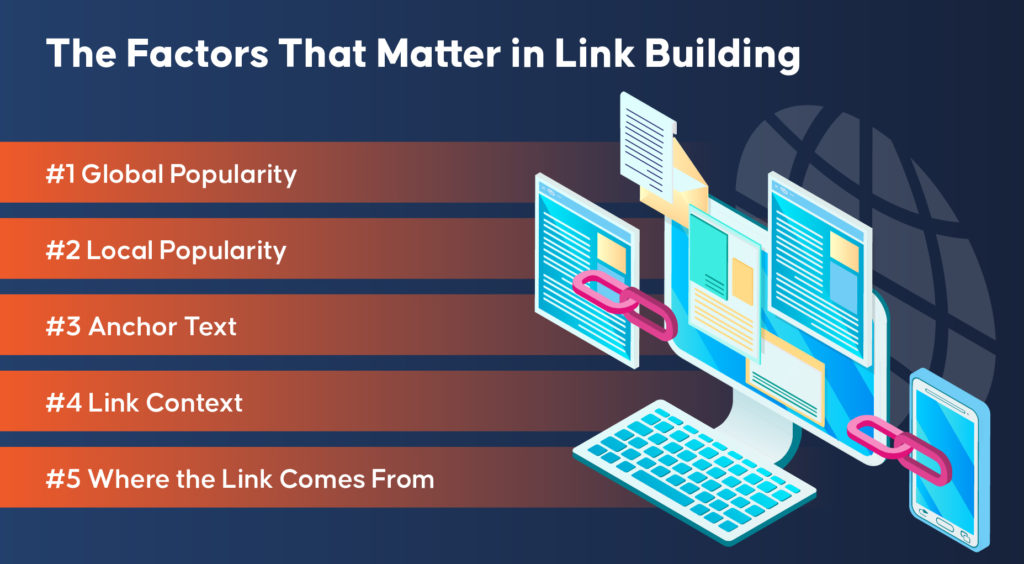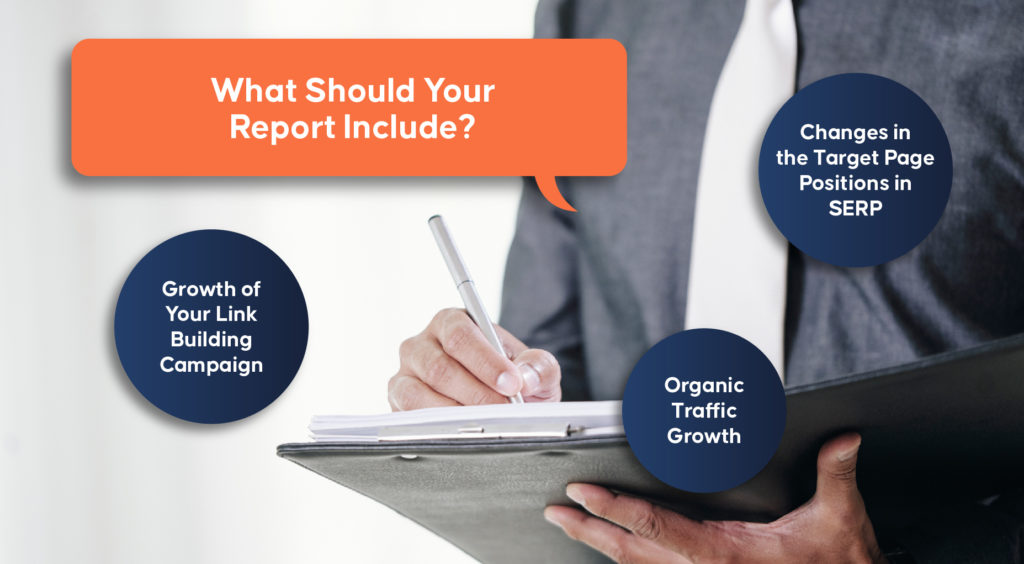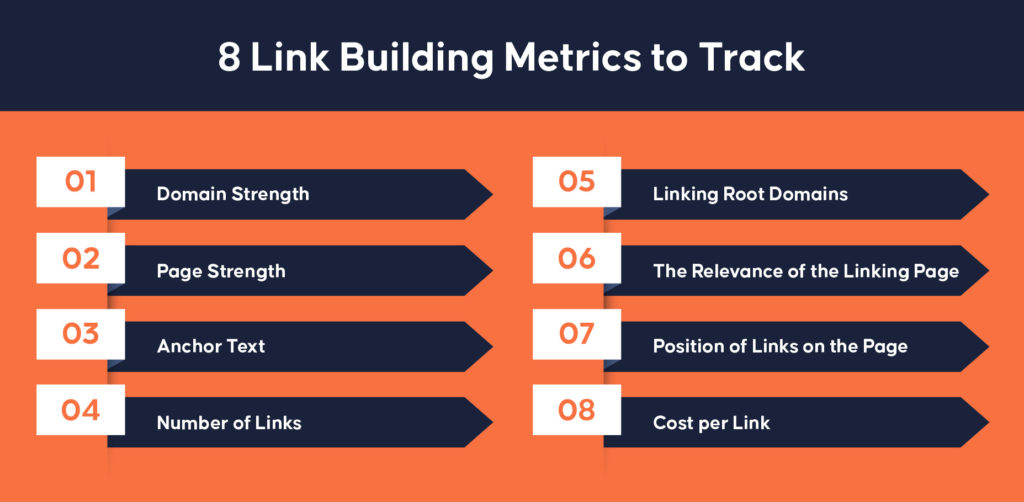Inquivix HQ
1-903, 18 Eonju-ro 146-gil,
Gangnam-gu, Seoul, Korea
06057

When it comes to link reporting, analyzing your link report metrics is essential for understanding what’s working and what’s not. We all know that links are still one of the most important ranking factors for Google. And while many marketers focus on acquiring links through various tactics, it’s important to remember that not all links are created equal.
In order to get the most benefit from your link-building efforts, it’s essential to understand which link report metrics matter most. In this blog post, we’ll discuss the most important link report metrics and what you should be looking for when conducting a link-building campaign. So, if you’re ready to take your link-building skills up a notch, keep reading!
What Is Link Building in Digital Marketing?
Link building is the process of acquiring links from other websites to your own. It also includes the internal links that connect different pages within your website. The purpose of link building is to improve your website’s search engine ranking by increasing the number of inbound links pointing to your site. Good inbound links are seen as “votes” by Google and other search engines, and the more votes you have, the higher your website will rank.
If you are interested in learning more about how to build links to your website, read our article on link building.

The Important Factors in Link Building
In order to get the best out of a link-building campaign, you need to understand some factors that affect the results of your campaign. Here are some of the things you should keep in mind.
Adoption
The more popular your site is, the more inbound links you will get. This is because, as your website’s popularity grows, more people will want to link to it. To increase your site’s global popularity, you need to make sure that your site is accessible to people from all over the world.
Popularity in the Community
This is when your site receives links from similar sites. If you want to increase your site’s local popularity, you should focus on building links from websites that are in the same niche as yours. If you are a clothing store, receiving links from fashion blogs will increase your authority and help you rank better.
Link Text
The anchor text used to link to your site matters. If you want to rank for a certain keyword, make sure the linking site uses that keyword as the anchor text. For example, if you want to rank for “ball gowns,” then you should use that phrase as your anchor text when linking to your website. However, be aware of anchor texts that might get flagged as spam.
Contextual Linking
Keywords are not the only thing that matters when it comes to anchor text. The context surrounding the link should be related. For example, if you have a website about baking and you get a link from a site about fashion, it might not be as helpful as a link from another baking site. Relevancy is key when it comes to links. Make sure the site linking to you is relevant to your niche or industry.

Where the Link Comes From
A link from a high-quality website will be worth more than a link from a low-quality website. Google looks at the overall quality of a website when determining how much weight to give a link.
Link Reporting and Its Importance
Knowing how your inbound links are performing is crucial for the success of your link-building campaigns. Regularly analyzing the links and reporting them to the relevant teams is important. Based on your report, the marketing team would be able to adjust and update your link-building campaigns. This helps save time, money, and resources.
Why should you track your links?
As a digital marketer, you have to know where your links are coming from. Are they from trusted and authoritative sites? Or are they from low-quality sites that could actually be harming your rankings?
By tracking your links, you can see which links are helping you achieve your goals and which ones aren’t. If you do not pay attention to these, your link-building campaign might do more harm than good.

Marketing Professionals
It is one of the key duties of marketers to build a brand image and establish authority. So, identifying which links are helping you achieve those goals is important. It would also help the marketers to see which links are driving traffic to their site. If a marketer is not tracking links, they are missing out on valuable insights.
Digital Marketing Agencies
Digital marketing agencies running link-building campaigns for businesses should also track their performance. The agency will be able to find out where the link-building campaign needs improvement and help discover new opportunities for link building. They should also look out for spam links to avoid being penalized by search engine algorithms.
What Should Your Report Include?
Link-building is challenging, especially when you don’t know which metrics to track and report on for the performance of your link-building campaign. There are certain metrics that you should focus on while doing a link report. In this next section, we will talk about the 3 most important metrics that you should be tracking for your link reports. These metrics will help you to identify and set realistic goals for your link-building campaigns.
Link Building Campaign Expansion
The first metric you should focus on is the number of links that you have built over a period of time. This will help you track the progress of your link-building campaign. You should strive to build more links over time in order to improve your website’s performance in search engines. Growing a good backlink portfolio takes time and a lot of effort.
You can use a tool like Google Analytics to measure the growth of your link-building campaign. Google Analytics will show you the number of links that have been built over time. If you see consistent growth in your backlink profile, it means your link-building campaign is moving forward.
Changes in the Target Page Positions in the SERP
After a link profile analysis, you will need to track the position of the target page on the search engine results pages (SERPs). The position of your target page on SERPs will give you an indication of the progress of your link-building campaign.
To do this, you can use a tool like Google Search Console. The Google Search Console will show you the average position of your target page on SERPs. If you see a consistent increase in the average position of your target page, it is an indicator of the success of your link-building campaign. Ideally, your objective should be to rank in one of the top 3 positions on the SERP. But getting on the first page is a good enough achievement. If you are not ranking well on the SERPs, then it is time to revise your link-building efforts.

Organic Traffic Growth
The main objective of building links is to increase organic traffic to your target web page. You can measure how much traffic is generated by analyzing website traffic data in Google Analytics. Look for any consistent increase in organic traffic, month-over-month or year-over-year. If you see a big jump in organic traffic, it means that your campaign to build links is working well.
Depending on how competitive your industry niche is, the organic traffic growth rate may vary. It may not happen overnight, but the slow and steady growth of organic traffic will eventually lead to more sales and conversions for your business. So, one of the three most important metrics to track to see how well your link-building campaigns are doing is the growth of your site’s organic traffic.
Eight link-building metrics to monitor
There are a few different metrics that you should keep in mind when measuring the success of your link-building campaigns. These link metrics will help you understand what is working and what is not so that you can adjust your strategy accordingly. They will also provide you with valuable insight into your digital marketing campaigns.
Domain Power
The total value or authority of a website is measured by domain strength. This includes data such as how old the site is, its popularity, the amount of content, and how many links it has. A strong domain is more likely to rank higher in search engine results pages (SERPs), which will give your site more visibility. Getting backlinks from sites with high authority will eventually improve your page authority levels. Therefore, tracking the domain strength is important for your link-building campaigns.
Page Stability
It is similar to domain strength, but this is for specific pages. This measures how valuable a page is to search engines. A strong page is more likely to rank higher and get more traffic. Just like domain strength, getting backlinks from high-authority pages will eventually improve your page’s authority levels. Tracking the page strength of your website’s pages (especially your landing pages) is important for link building.
Link Text
The anchor text for your backlink is the text that is linked to the URL and goes back to your website. It is important that the anchor texts linking your URLs are related to your niche and keywords. Using relevant anchor text will tell the user as well as the search crawlers what the linked site or page is about, thus making it more credible. If the anchor text is not relevant to your website, it will be considered spam by Google and will result in a penalty.

The Total Number of Links
Having a large number of links helps improve your website’s link popularity. Link popularity is one of the factors that search engines use to determine a website’s position in the search engine results pages (SERP). The number of links can also be used as a metric to measure the effectiveness of your link-building campaigns. If you notice an increase in the number of links after a campaign, it will indicate success. But a loss in the number of links will also indicate that something is amiss with your campaigns.
Connecting Root Domains
As the number of backlinks matters, so does their uniqueness. Having different links from several domains or websites is better than having multiple links from one domain. This will show that your website has been endorsed by many websites. It’s a strong vote of confidence for your website, which can lead to better rankings. Linking root domains also indicates the link authority or power of a website. If you have links from popular websites with high domain authority, it will have a greater impact on your website rankings.
The Linking Page’s Relevance
We discussed the significance of the number of links. However, a large number of links does not always guarantee a good ranking. “The link value matters.” It is better to have a link from a domain that is in the same niche as yours than from a completely different one. The relevance of the linking domains has two major impacts on your website.
One is that the search algorithms place a high value on links from related domains. They recognize such links as more credible than ones from unrelated ones. The second is that a user finding your site through another relevant site offers a better chance of converting into a lead. For example, a user finding your clothing business site through a link from a fashion blog has a better chance of making a purchase.
Position of Links on the Page
This metric tracks the placement of the link on the referring domain. The purpose of link placement is to demonstrate how significant and trustworthy someone thinks a link they create to another site is. The less authority or trust they have, the lower on a page or in an obscure location it will be. The link positioning will affect your domain’s overall SEO as well as the click-through rate (CTR) of your site.
Cost per Link
The return on investment (ROI) is another key metric that you should track for your link-building campaigns. This metric is determined by taking the total cost of your link-building campaign and dividing it by the number of links you acquired. This will give you an idea of how much each link costs and how efficient your campaign has been.
You can earn links through partnerships, cold emails, or even broken link checks. But sometimes, you will have to get links through sponsorships, paid guest posting, or other means. Therefore, before taking a step further, you need to assess how much this link building will cost you and whether it will generate a positive ROI.
Conclusion
Link building is one of the key elements in digital marketing. Therefore, you need to be aware of the metrics that can help you determine the success of your link-building campaigns. It’s important to track the right metrics when it comes to link-building campaigns. By understanding which factors influence your links, you can focus on improving your SEO strategy and see better results.
As you can see, there are a number of different link-building metrics that you can track in order to get a better understanding of the success (or failure) of your campaigns. Keep in mind that not all of these metrics will be relevant to every campaign – choose the ones that make the most sense for your business and goals. By tracking these metrics, you’ll be able to fine-tune your link-building efforts and improve your overall ROI.
Inquivix digital marketing services include link-building services customized for your business. Our team of SEO experts will help you identify the right link-building opportunities and work with you to develop a strategy that meets your goals. Contact us today to learn more about our services and how we can help you improve your link-building campaigns.
